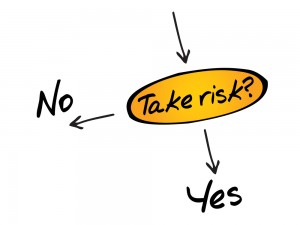I have an allergic reaction to the gravitational pull of the status quo when it masquerades as conventional wisdom.
Too often, leaders and managers reduce complex and emerging situations to an algorithm developed for another time and set of variables. It’s a guaranteed doom loop.
They avoid the hard work of creative thinking. And change.
It’s easier to fall back than fight forward.
You don’t have to look hard to find individuals in our organizations falling back on what they describe as conventional wisdom. There’s nothing wise about any of these examples.
Painful Examples of Aberrant Conventional Wisdom in Action:
-Almost any position recruiting description. These people don’t exist, particularly with those sets of experience.
Me: hire people smart and agile enough to survive as pioneers. Recruit by looking out the windshield and not the rear-view mirror. (Old HR, your table is ready.)
-Strategy by S.W.O.T.
Me: O.M.G. Y.M.B.F.K.M. Hint: you must be kidding me with this reductive approach.
-“We’ve always done it this way.”
Me: Argh!
-HR Executive: “I’m annoyed that you are asking me to interview her. She has no experience in our business.”
True, she had never worked for a software developer, just customers in our most important new market. Please join the HR table above.
-Another clueless HR manager: “There’s no title on the books for that job. You can’t hire for it.”
It’s my day to unleash my pent-up HR frustration. May I point you to the table?
-A clueless executive: “You can’t promote her—she doesn’t have enough experience.”
Me: I can, I will, and how do you think she’s going to get the experience?
-More of that bad hiring conventional wisdom: Past performance at this job is the best indicator of future success.
But….but…but…this job and this technology never existed before?
-“Our strategy has worked great—there’s no reason to change.”
Repeat after me: “We’re going to be global road-kill.”
 Board member: “Given the broader economic challenges, now is the perfect time to cut employee benefits. No one will notice. They’ll be grateful for a job.”
Board member: “Given the broader economic challenges, now is the perfect time to cut employee benefits. No one will notice. They’ll be grateful for a job.”
Me: Your table is ready. There’s a special place for you. It’s warm.
-“We can’t fire him. He’s too valuable.”
-We can’t afford not to fire him. The cost of his toxicity and valueless existence in our firm grossly exceeds any value he provides.
-CEO to me: “It’s too bad you’re not an autocrat.”
Me: Command and control leaders, your table is ready.
-CEO: “We meet once a year at an offsite to plan strategy.”
Me: “It’s a never-ending process and something that must be baked into the operating routine of a business.”
-Marketing executive: “That event isn’t tied to our industry. We’re not approving the expense.”
Me: Hmmm. What’s happening outside your industry that might change everything? Can you say “Global road kill?”
-Frustrated manager: “It takes a year to fire someone here.”
Me: “Y.M.B.F.K.M.!” Someone should be fired for this ridiculous process. There’s a seat at the HR table.
-Too good to get her hands dirty with politics employee: “I’m not going to play those games.”
Me: Don’t play games. Just figure out who has power and how you can get some of it. Otherwise….sorry, but you’ll be road kill.
Paying the Price for Pushing Back:
I was recently asked by a CEO to coach an executive who was allegedly struggling to fit in with the rest of the management team. I asked to sit-in and observe the individual in action across a couple of management team working and planning meetings.
After the final session, the CEO asked me if I saw evidence of the problem in action.
 My answer was, “Yes, just not the problem you think you have.”
My answer was, “Yes, just not the problem you think you have.”
He looked at me a bit puzzled.
I followed up: “My counsel is to consider promoting the executive you perceive as a trouble-maker. She’s the only one on your team not trying to protect turf. She’s the only one with the courage to highlight gaps and suggest new approaches. Everyone else is involved in some imagined game of chess for power and influence. They don’t like this executive because she dares to challenge conventional wisdom on your team.”
I followed with: “I would like to take on the assignment of coaching your executive team on how to behave more like this executive.”
I didn’t get the gig.
Conventional wisdom would have suggested I play along with the CEO and attempt to coach this free-thinking executive to behave more like the others.
Did I mention I don’t bow to conventional wisdom, even at the cost of a high paying contract?
Best deal I didn’t land all year.
9 Suggestions for Fighting Back Against Conventional Wisdom:
1. Quit looking out the same window.
The window is a metaphor for how you view the world.
Most leaders look exclusively through the lens of their industry and customers.
The genetically modified, self-driving, semi-organic disruption that will run you over isn’t coming from that direction.
 2. Fire people who tell you what you want to hear.
2. Fire people who tell you what you want to hear.
Seriously. Enough said.
3. Fire yourself if you create an environment where people are fearful of telling you their real perspective.
Fear is the mind killer. It’s also an organization killer.
4. Constantly ask, “What are you hearing that’s new?”
OK, I am shamelessly ripping off a great anecdote from Ram Charan on how he described the relentless “What’s new?” questioning of former GE Chairman, Jack Welch.
My translation: “What do you know that’s new that I don’t?”
5. Don’t send in the clones. Or, the clowns.
Quit hiring people like you. Now.
6. Build strategy refresh into your operating routine.
Constantly ask and answer these questions: What’s happening? How should we act? What specific actions should we take?
7. Scout your own talent.
Quit outsourcing this critical task to people and functions incapable of getting it right.
8. Push people out ahead of their experiences as a core part of supporting their development. The words, “He’s not ready,” should never pass your lips.
There’s no better way to help them gain experience. Observe and coach.
9. Question your premises. No, not your office, the logical assumptions that guide you through life.
Chances are the logical constructs that define how you think and view the world need a tune-up. Have the presence of mind to challenge yourself to rethink how you think.
The Bottom-Line for Now:
You don’t have to be a jerk to fight the conventional wisdom and “tried and true” practices. In fact, the most effective practitioners relentlessly pursue driving results from their ideas and counter-intuitive approaches. Done properly, they grow credibility and gain a following. It’s a beautiful thing when the people around you are thinking faster and harder about why your old approaches no longer hunt. When that happens, smile and let them go long and deep!
—








Leave A Comment